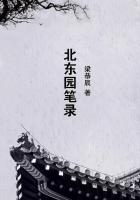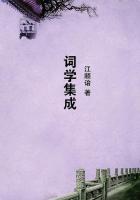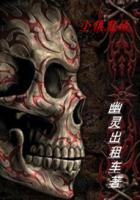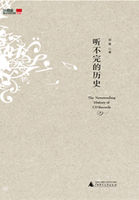It was notoriously on account of what they had done as members of that House that they were selected as objects of vengeance; and in what they had done as members of that House the majority had concurred. Most of the charges brought against them were common between them and the Parliament. They were accused, indeed, and it may be with reason, of encouraging the Scotch army to invade England. In doing this, they had committed what was, in strictness of law, a high offence, the same offence which Devonshire and Shrewsbury committed in 1688. But the King had promised pardon and oblivion to those who had been the principals in the Scotch insurrection. Did it then consist with his honour to punish the accessaries? He had bestowed marks of his favour on the leading Covenanters. He had given the great seal of Scotland to one chief of the rebels, a marquisate to another, an earldom to Leslie, who had brought the Presbyterian army across the Tweed. On what principle was Hampden to be attainted for advising what Leslie was ennobled for doing? In a court of law, of course, no Englishman could plead an amnesty granted to the Scots. But, though not an illegal, it was surely an inconsistent and a most unkingly course, after pardoning and promoting the heads of the rebellion in one kingdom, to hang, draw, and quarter their accomplices in another.
The proceedings of the King against the five members, or rather against that Parliament which had concurred in almost all the acts of the five members, was the cause of the civil war. It was plain that either Charles or the House of Commons must be stripped of all real power in the state. The best course which the Commons could have taken would perhaps have been to depose the King, as their ancestors had deposed Edward the Second and Richard the Second, and as their children afterwards deposed James. Had they done this, had they placed on the throne a prince whose character and whose situation would have been a pledge for his good conduct, they might safely have left to that prince all the old constitutional prerogatives of the Crown, the command of the armies of the state, the power of making peers, the power of appointing ministers, a veto on bills passed by the two Houses.
Such prince, reigning by their choice, would have been under the necessity of acting in conformity with their wishes. But the public mind was not ripe for such a measure. There was no Duke of Lancaster, no Prince of Orange, no great and eminent person, near in blood to the throne, yet attached to the cause of the people.
Charles was then to remain King; and it was therefore necessary that he should be king only in name. A William the Third, or a George the First, whose title to the crown was identical with the title of the people to their liberty, might safely be trusted with extensive powers. But new freedom could not exist in safety under the old tyrant. Since he was not to be deprived of the name of king, the only course which was left was to make him a mere trustee, nominally seised of prerogatives of which others had the use, a Grand Lama, a Roi Faineant, a phantom resembling those Dagoberts and Childeberts who wore the badges of royalty, while Ebroin and Charles Martel held the real sovereignty of the state.
The conditions which the Parliament propounded were hard, but, we are sure, not harder than those which even the Tories, in the Convention of 1689, would have imposed on James, if it had been resolved that James should continue to be king. The chief condition was that the command of the militia and the conduct of the war in Ireland should be left to the Parliament. On this point was that great issue joined, whereof the two parties put themselves on God and on the sword.
We think, not only that the Commons were justified in demanding for themselves the power to dispose of the military force, but that it would have been absolute insanity in them to leave that force at the disposal of the King. From the very beginning of his reign, it had evidently been his object to govern by an army. His third Parliament had complained, in the Petition of Right, of his fondness for martial law, and of the vexatious manner in which he billeted his soldiers on the people. The wish nearest the heart of Strafford was, as his letters prove, that the revenue might be brought into such a state as would enable the King to keep a standing military establishment. In 1640 Charles had supported an army in the northern counties by lawless exactions. In 1641 he had engaged in an intrigue, the object of which was to bring that army to London for the purpose of overawing the Parliament. His late conduct had proved that, if he were suffered to retain even a small body-guard of his own creatures near his person, the Commons would be in danger of outrage, perhaps of massacre. The Houses were still deliberating under the protection of the militia of London. Could the command of the whole armed force of the realm have been, under these circumstances, safely confided to the King? Would it not have been frenzy in the Parliament to raise and pay an army of fifteen or twenty thousand men for the Irish war, and to give to Charles the absolute control of this army, and the power of selecting, promoting, and dismissing officers at his pleasure? Was it not probable that this army might become, what it is the nature of armies to become, what so many armies formed under much more favourable circumstances have become, what the army of the Roman republic became, what the army of the French republic became, an instrument of despotism? Was it not probable that the soldiers might forget that they were also citizens, and might be ready to serve their general against their country? Was it not certain that, on the very first day on which Charles could venture to revoke his concessions, and to punish his opponents, he would establish an arbitrary government, and exact a bloody revenge?















